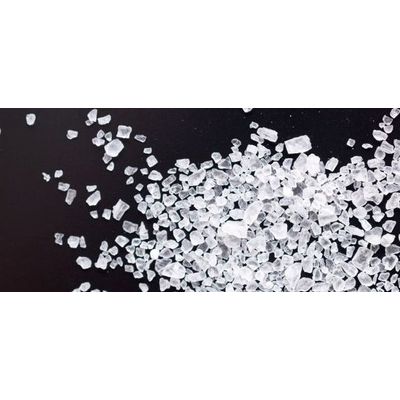

- Home
- Companies
- EasyMining - Ragn-Sells Group
- Products
- ASH2 SALT - Fly Ash Salts Recovery ...

ASH2 SALT - Fly Ash Salts Recovery Technology
If we are serious about creating a sustainable, climate neutral society, we have to start using the materials we already have as often as possible. The Ash2Salt technology extracts commercial salts from fly ash, a hazardous by-product from incineration. Valuable raw materials in the ash, such as the agricultural nutrient potassium, can be circulated and used again. This cuts the CO2 footprint of the salts by around 90% compared to traditional, virgin salt production. The first full-scale Ash2Salt facility is set to open shortly near Stockholm, Sweden. The technology is also available in 12 countries all over the world thanks to a licencing agreement with Hitachi Zosen Inova.
The Ash2®Salt technology extracts commercial salts from high chloride containing fly ashes.
The Ash2Salt process is preceded by two pre-treatment steps: In the first step, fly ash is washed with water resulting in a cleaned ash and a leachate containing mainly chloride salts and heavy metals that continues to the second step.
In the second step, sulphides are used to precipitate heavy metals from the leachate and the resulting chloride-saturated liquid then continues to the Ash2Salt process. Ash2Salt process separates calcium chloride, potassium chloride and sodium chloride by the use of a single evaporator. In addition, water extracted from the evaporator is recirculated to the initial washing step.
In a washing plant for fly ash without the Ash2Salt process, following limitations exist:
- The washing plant must have permission to discharge large amounts of chloride-containing effluents
- The chloride content of the ash can vary depending on what the incineration plants burn resulting in different amounts of chloride effluent that must be discharged.
- Fresh water is needed for the washing
The main advantages of having the Ash2Salt process are:
- Washing of fly ash without a discharge of chlorides
- High tolerance for variations in chloride content in the ash
- Creates a source of income by producing pure commercial salts and ammonia
- Recovers nitrogen and potassium, which can be used in fertilizer production
- No need for fresh water since the Ash2Salt process can use landfill leachate and process water for the washing
EasyMining’s patented Ash2Salt process is unique and can extract commercial salts from high chloride containing fly ashes. After washing, the ash residue can be landfilled without an exemption for high chloride contents or re-used as an industrial raw material.
The Ash2Salt process can extract commercial grade:
- Potassium chloride (KCl)
- Sodium chloride (NaCl)
- Calcium chloride (CaCl2)
- Aqueous ammonia solution (NH3) or ammonium sulfate ((NH4)2SO4)
Fly ash is a product of air pollution control at incineration plants. It is a hazardous waste due to high contents of heavy metals and chlorides. At the same time, it contains several valuable compounds which, until now, have been lost as the ash has been disposed of.
The Ash2Salt process washes the fly ash, and three commercial grade salts are extracted from the liquid: potassium chloride, sodium chloride, and calcium chloride.
After washing, the remaining ash can be placed on a landfill for non-hazardous waste. This represents a major change, since the hazardous properties of fly ash have always made it expensive and problematic to handle.
Research also indicates that the washed material may be adaptable for industrial use in the future.
Incinerating municipal waste destroys potentially harmful microbes and many contaminants. At the same time, valuable raw materials are concentrated in the residue, for example in the fly ash, making it possible to recover them at a large scale.
For all the three main salts produced by the Ash2Salt technology, the climate footprint is about one-tenth of traditional production.
- Potassium is one of the key nutrients in fertiliser, crucial for agriculture to be able to grow the food we need. Today, it is mined, which causes large climate emissions, and production is largely concentrated to a few countries. Potassium chloride from the Ash2Salt process carries a carbon footprint 93% lower than the equivalent from the mining of virgin resources.
- Common production of calcium chloride requires the mining and heating of limestone, another climate-intensive process. It is primarily used for de-icing roads and carries a 92% lower carbon footprint when produced with the Ash2Salt method.
- Sodium chloride, known to most people as ordinary table salt, is one of the most used chemical compounds on the planet. Many industrial processes depend on large quantities of sodium chloride. As most of it comes from mining or the evaporation of sea water, the Ash2Salt technology lowers production climate emissions by 88%.
